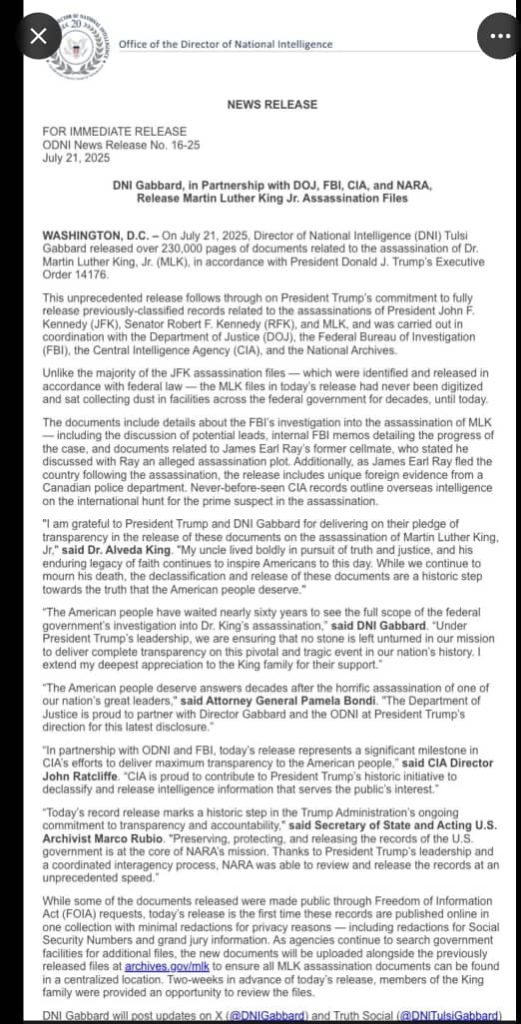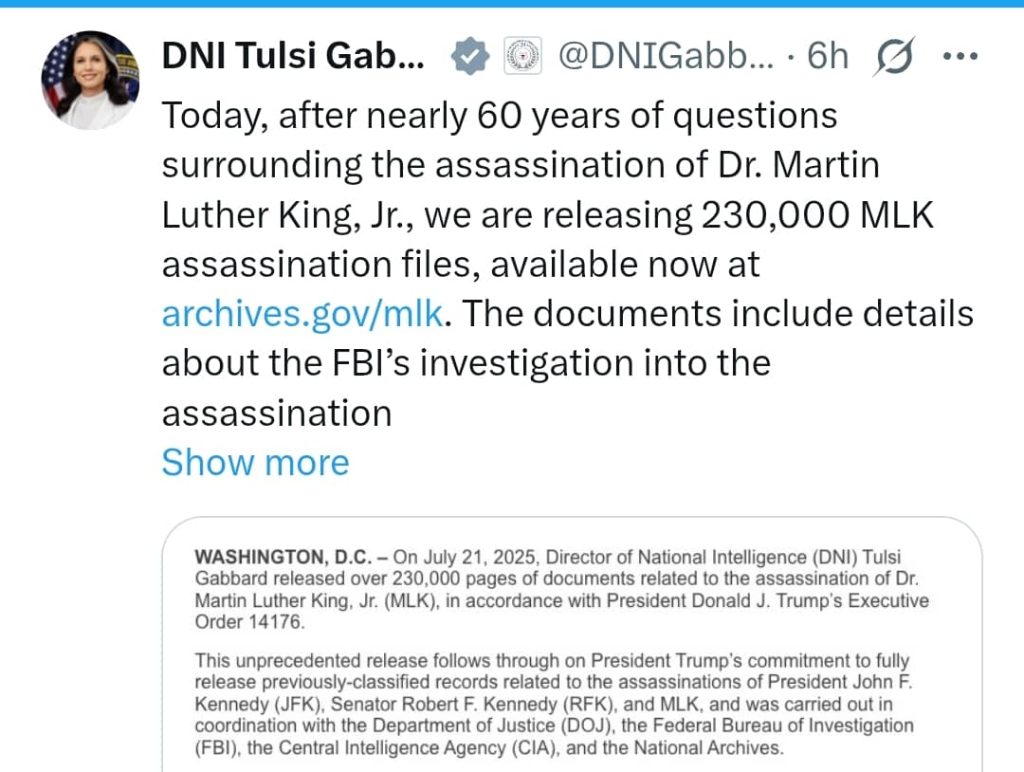In a dramatic and controversial move, the Trump administration, through the Office of the Director of National Intelligence (DNI), has declassified and released over 230,000 pages of documents related to the assassination of Dr. Martin Luther King Jr. The release, confirmed by current DNI Tulsi Gabbard, was announced via her official X (formerly Twitter) handle, marking one of the most extensive public disclosures of civil rights-era intelligence files in American history.
“Today, after nearly 60 years of questions surrounding the assassination of Dr. Martin Luther King, Jr., we are releasing 230,000 MLK assassination files, available now at http://archives.gov/mlk,” Gabbard wrote. “The documents include details about the FBI’s investigation into the assassination of MLK, discussion of potential leads, internal FBI memos detailing the progress of the case, information about James Earl Ray’s former cellmate who stated he discussed with Ray an alleged assassination plot, and more.”
While the release has been framed by the administration as a move toward historical transparency and public accountability, it has sparked backlash — particularly from Dr. King’s family, civil rights historians, and privacy advocates.
The King family released a statement on Sunday expressing deep concern over the public dissemination of documents that chronicle the FBI’s disinformation campaigns, surveillance efforts, and psychological warfare against Dr. King, particularly under former FBI Director J. Edgar Hoover.
“These files do not just detail an investigation — they expose an era of harassment and trauma inflicted on a man who gave his life to peace and justice,” the statement read. “Releasing them now, without context or sensitivity, reopens wounds and risks distorting Dr. King’s legacy.”
The newly publicized records include not only case files related to the 1968 assassination of Dr. King in Memphis, Tennessee, but also internal communications between FBI officials, memos on surveillance programs targeting civil rights leaders, and leads concerning James Earl Ray, who was convicted of killing King but whose guilt has long been debated.

Credit: @DNIGabbard via x.com.
Among the most explosive revelations is testimony from Ray’s former cellmate, who reportedly told investigators that Ray spoke of an assassination plot months before the shooting — a detail that may reignite theories of broader involvement or conspiracy.
The Trump administration, now in its second term, has positioned the move as part of what it calls “Phase 3 Transparency Initiatives,” aimed at exposing controversial historical coverups. Critics, however, say the decision is politically motivated and could further polarize the national conversation on race, history, and justice.
Historians and researchers are already combing through the files, available via the National Archives website, to assess whether the documents offer new insights or simply reinforce existing knowledge about one of the most tragic and pivotal moments in American history.
Despite the controversy, the release marks a significant milestone in the U.S. government’s slow reckoning with its treatment of civil rights leaders during the 20th century.
As public and scholarly debate intensifies, one thing is certain: the legacy of Dr. Martin Luther King Jr. continues to shape — and challenge — the conscience of the nation.

Credit: @DNIGabbard via x.com.








Leave a Reply